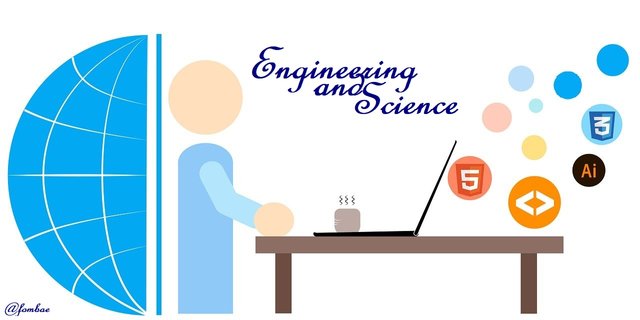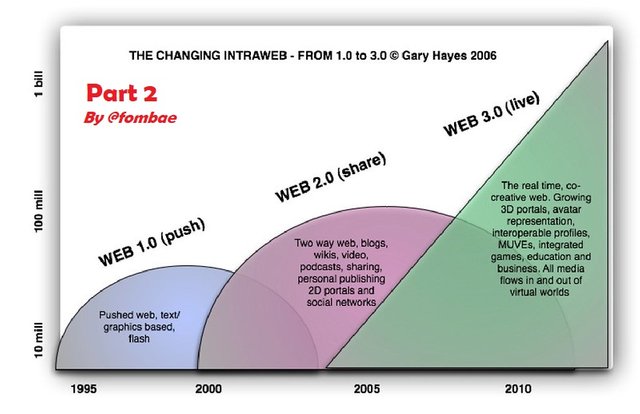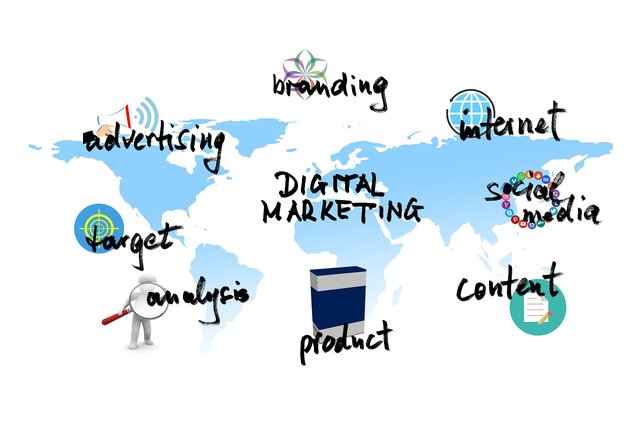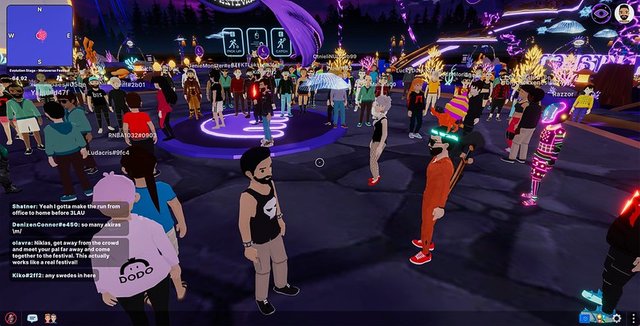Engineering and Science (Web 3.0 Final series)
 Image source Pixabay.com
Image source Pixabay.com
- Engineering and Science (Intro Web 3.0)
- Engineering and Science (Web 1.0 -> Web 2.0 -> Web 3.0)
- Engineering and Science (Web 3.0 Advantages and Disadvantages)
- Engineering and Science (Web 3.0 Importances for the Future)
During my series of posts on Web 3.0, its technology is all about IoT, AI, and Blockchain. We are not mentioning semantic web because it was already in existence with web 2.0. The main concern today will focus on web 3.0 and Blockchain, web3.0 and digital marketing, etc.
 Image source Flickr.com
Image source Flickr.com
Web 3.0 and Blockchain
It has been kind of confusing to differentiate between web 3.0 and blockchain, as many users turn to associate blockchain with web 3.0. The previous series of posts on web 3.0 has made it clear that blockchain is one of the core technological layers used in building web 3.0 platforms. Blockchain is the fundamental technology on the web 3.0 backend of the semantic web, as data is redefined and stored.
When applied to web 3.0 applications, it is called Ethereum blockchain, which is the decentralized state machine for the deployment of smart contracts. As I mentioned in one of the series, smart contracts define the logic of web 3.0 applications. So any developer who wants to build blockchain applications will have to deploy the application codes on a shared state machine (Ethereum blockchain).
Both data and code of the applications are stored and managed on the shared state machine, which is completely owned by all the network users. This way the peer-to-peer networks of nodes are owned and maintained by all the users collectively. So the decision taken is based on the rules of agreement between the peers on the network to make changes on the state machine.
So those of us who went through the crypto course will have more understanding of how blockchain works. I will do a small illustration
If A wants to send money to B, A will initiate the transaction. This transaction is then represented online as a block that is broadcast to all the peers on the network. As I mentioned above, all the users make the decision. At this point, the peers in the network will approve the transaction if it is valid. When the transaction is approved, it can then be added to the chain. The transaction becomes an indelible and transparent record because of its ability of it to be added to the chain. Now, the A transaction is valid, and the money moves to B.
So in all, that is just how blockchain works applying indelible and transparent records. The Blockchain keeps all data open for all to access, which can not be edited or changed. Peer-to-peer networks eliminate the intermediaries making transactions secure and safer. With blockchain, users can send files in a more protected way since the data is encrypted.
As users interact on web 3.0 applications, the background technology (AL and Machine Learning) processes the queries and mount the data on the blockchain, which is accessed anywhere by any internet user. Now in the case of Web 3.0 and blockchain, a site can't be blocked by any authority of the government.
Web 3.0 and Digital Marketing.
Digital Marketing: Digital Marketing which is also called online marketing, is the promotion of a brand using the internet and online digital technologies tools such as emails, social media platforms, etc. these tools are mounted on devices like mobile phones, computers, tablets, watches, etc.
 Image source Pixabay.com
Image source Pixabay.com
Web 3.0 is taking over from web 2.0, and so will some of the aspects of digital marketing. some impacts of web 3.0 on digital marketing include:
Less focus on keywords(Web 3.0 has a more understanding of users' needs and queries)
Increase in voice search(using digital assistants-Apple Sirri)
Increase question keyword optimization(Answer users accurately)
Rise of hyper-personalized experiences(Replacing static website)
Web 3.0 and Metaverse
Metaverse is the buzzword that came recently when Facebook was migrating to the new name Meta. Metaverse is about sharing data in a virtual environment using computers that are accessible via the internet. That is a digital space that combines virtual and reality for its use on the internet.
 Image source Flickr.com
Image source Flickr.com
As of now, users interact with each other via social media using applications, while with virtual space the users will own characters that will interact with users. The characters can walk around, and communicate just like their own(avatar) while interacting (sending text, sounds, music, video games, etc) Here users will have a 3D experience while interacting and feel the reality rather than just watching content.
A push for web 3.0 is vital in the accomplishment of Metaverse, a reality if blockchain technology Is used at the backend. Web 3.0 can easily enable the virtual world online, which will be accessible via the semantic web. Now Metaverse is associated with virtual games, but in the future web3.0 and metaverse will proliferate all aspects of society.
My thoughts on Web 3.0
I will end my series on Web 3.0 here, the internet is moving towards an era where users will have full control over their data. The level of data security and privacy will be high, as companies will not have access to users' information. Web3.0 will be the final bus stop for dishonesty, as user's data will be used more transparently. Not too far from now, Web 3.0 will be taking over the internet. You can do your research to learn more about Web 3.0, it covers a lot of sectors.
Cheers
Thanks for dropping by
@fombae
Hello @fombae nice article there but there is a small questions that is divided into 2 parts that I wish to ask.
What is the difference between web 3.0 and web 2.0
And
Do web 2.0 also use the ai technology?
Web 2.0 is about managing web content from one central database, and with web 2.0 it is easy for companies to make use of users' information. We know of the case of Facebook being accused of using users' data for advertising purposes.
Yeah, they are some level of AI, for example when doing a search on Google and you have related options popping up.
With web 3.0, the level of AI is higher adding to Machine learning making the platform more sophisticated. Web 3.0 applications are deployed on the blockchain which now comes in the secure and transparent ability of the platform.
Thanks for checking out my blog @fonjougiresse, Hope I answer your questions
Yes my questions was answered, well understood. Thank you.
Meaning the web 3.0 is more advantageous as compared to the web 2.0 technology. But companies still use the web 2.0 though
Well, some companies still used web 2.0 because the lack the resources to migrate. But like I mentioned, web 3.0 will takeover the Internet in the near future.
Users want to own their data, control and management every information belonging to them. Above all the fact that users get paid for browsing the web is an added advantage.
Yes indeed to be paid for browsing is a marvelous advantage.
Little by little companies will gradually switch to the web 3.0 technology